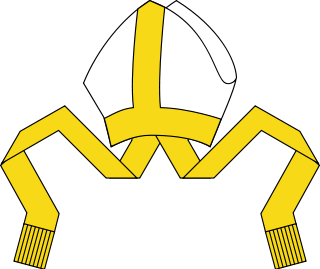Related Research Articles

Liberation theology is a synthesis of Christian theology and socio-economic analyses, based on far-left politics, particularly Marxism, that emphasizes "social concern for the poor and political liberation for oppressed peoples." Beginning in the 1960s after the Second Vatican Council, liberation theology became the political praxis of Latin American theologians such as Gustavo Gutiérrez, Leonardo Boff, and Jesuits Juan Luis Segundo, and Jon Sobrino, who popularized the phrase "preferential option for the poor." This expression was used first by Jesuit Fr. General Pedro Arrupe in 1968 and soon after this the World Synod of Catholic Bishops in 1971 chose as its theme "Justice in the World".

Social justice is a concept of fair and just relations between the individual and society, as measured by the distribution of wealth, opportunities for personal activity, and social privileges. In Western as well as in older Asian cultures, the concept of social justice has often referred to the process of ensuring that individuals fulfill their societal roles and receive what was their due from society. In the current global grassroots movements for social justice, the emphasis has been on the breaking of barriers for social mobility, the creation of safety nets and economic justice.
The Christian left is a range of center-left and left-wing Christian political and social movements that largely embrace social justice viewpoints and uphold a social gospel. Given the inherent diversity in international political thought, the term can have different meanings and applications in different countries. Although there is some overlap, the Christian left is distinct from liberal Christianity, meaning not all Christian leftists are liberal Christians, and vice versa. Some Christian leftists have socially conservative views on social issues but lean left on economic issues.
Catholic social teaching is the Catholic doctrines on matters of human dignity and common good in society. The ideas address oppression, the role of the state, subsidiarity, social organization, concern for social justice, and issues of wealth distribution. Its foundations are widely considered to have been laid by Pope Leo XIII's 1891 encyclical letter Rerum novarum, which advocated economic distributism. Its roots can be traced to the writings of Catholic thinkers such as Thomas Aquinas and Augustine of Hippo, and is also derived from concepts present in the Bible and the cultures of the ancient Near East.
The Catholic Worker Movement is a collection of autonomous communities of Catholics and their associates founded by Dorothy Day and Peter Maurin in the United States in 1933. Its aim is to "live in accordance with the justice and charity of Jesus Christ". One of its guiding principles is hospitality towards those on the margin of society, based on the principles of communitarianism and personalism. To this end, the movement claims over 240 local Catholic Worker communities providing social services. Each house has a different mission, going about the work of social justice in its own way, suited to its local region.

The Congregation of the Most Holy Redeemer, commonly known as the Redemptorists, is a religious congregation of the Catholic Church, dedicated to missionary work and founded by Alphonsus Liguori at Scala, near Amalfi, Italy, for the purpose of labouring among the neglected country people around Naples. Members of the congregation are Catholic priests and consecrated religious brothers and minister in more than 100 countries.
Centesimus annus is an encyclical which was written by Pope John Paul II in 1991 on the hundredth anniversary of Rerum novarum, an encyclical issued by Pope Leo XIII in 1891. It is part of a larger body of writings, known as Catholic social teaching, that trace their origin to Rerum novarum and ultimately the New Testament.

Paulo Evaristo Arns OFM was a Brazilian prelate of the Roman Catholic Church, who was made a Cardinal and the Archbishop of São Paulo by Pope Paul VI, and later became Cardinal Protopriest of the Roman Catholic Church. His ministry began with a quiet twenty-year academic career, but when charged with responsibility for the Sao Paulo Archdiocese he proved a relentless opponent of Brazil's military dictatorship and its use of torture as well as an advocate for the poor and a vocal defender of liberation theology. In his later years he openly criticized the way Pope John Paul II governed the Catholic Church through the Roman Curia and questioned his teaching on priestly celibacy and other issues.

The Catholic Church in Brazil is part of the worldwide Catholic Church, under the spiritual leadership of the Pope in Rome, and the influential National Conference of Bishops of Brazil, composed of over 400 primary and auxiliary bishops and archbishops. There are over 250 dioceses and other territorial jurisdictions in Brazil. The primate of Brazil is Dom Murilo Ramos Krieger.

The Catholic Church in Haiti is part of the worldwide Catholic Church, under the spiritual leadership of the Pope, the curia in Rome and the Conference of Haitian Bishops.

Basic ecclesial communities are small neighborhood groups, originating in the Catholic Church in Latin America, who meet to reflect upon scripture and apply its lessons to their situation.

Christianity is a minority religion in Muslim-majority Somalia, with an estimated 1,000 practitioners in a population of over 10 million inhabitants. Most Christian adherents come from the Bantu ethnic minority group, or are descended from Italian colonists and belong to the Evangelical and Wesleyan Church of the Nazarene. There is one Catholic diocese for the entire country, the Diocese of Mogadishu.

Gabino Zavala is a former auxiliary bishop of the Archdiocese of Los Angeles.
The option for the poor, or the preferential option for the poor, is one of the newer principles of the Catholic social teaching, as articulated in the latter half of the 20th century; it is also a theological emphasis in Methodism. The concept was championed by many Christian democratic parties in Latin America at the time.
Post Vatican II history of the Catholic Church includes the recent history of the Catholic Church since the Second Vatican Council.
The Roman Catholic Church in the 20th century had to respond to the challenge of increasing secularization of Western society and persecution resulting from great social unrest and revolutions in several countries. It instituted many reforms, particularly in the 1970s under the Vatican II Council, in order to modernize practices and positions. In this period, Catholic missionaries in the Far East worked to improve education and health care, while evangelizing peoples and attracting numerous followers in China, Taiwan, Korea, and Japan.

Vincent Nguyễn Văn Long O.F.M. Conv. is a Vietnamese Australian prelate of the Catholic Church. He was appointed the fourth Bishop of Parramatta, Australia, by Pope Francis on 5 May 2016. He has been a bishop since 2011 after serving for several years in the leadership of the Franciscans, first in Australia and later in Rome. He is Australia's first Asian-born bishop and the first Vietnamese-born bishop to head a diocese outside of Vietnam.
The Catholic Church operates numerous charitable organizations.

Center of Concern (Center) was a think tank in Washington, D.C., that Jesuit Superior General Pedro Arrupe and National Conference of Catholic Bishops General Secretary Joseph Bernardin co-founded on May 4, 1971. The Center started as a joint project of the Society of Jesus and the National Conference of Catholic Bishops, but has operated independently since then. On October 12, 2018, the Center of Concern announced that it no longer had the financial resources to sustain normal operations and that it had terminated all of its paid staff.
References
- ↑ Living Justice and Peace: Catholic Social Teaching in Practice by Jerry Windley-Daoust. St. Mary's Press (2002) ISBN 0-8848-9753-2
- ↑ "Justice in the World, 6" (PDF). Retrieved 18 August 2020.
| This article related to an official document of the Catholic Church is a stub. You can help Wikipedia by expanding it. |